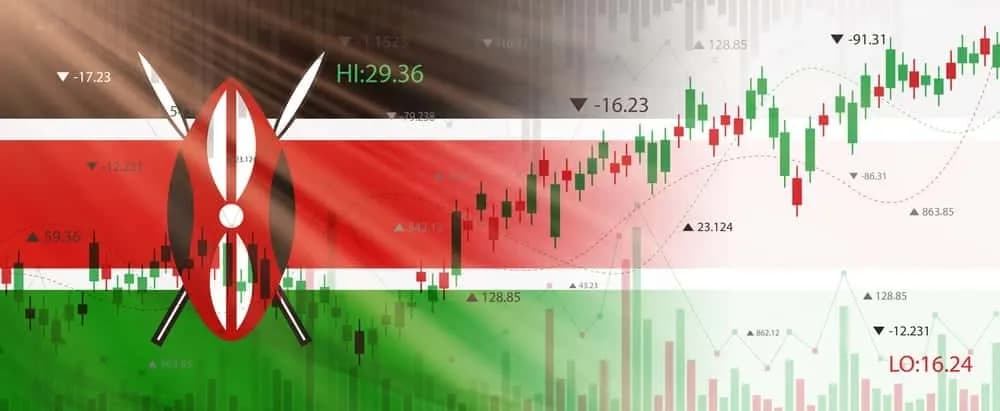We're loading the full news article for you. This includes the article content, images, author information, and related articles.
Capital Markets Authority regulations introduced in 2017 have significantly boosted investor confidence and market stability in Kenya's rapidly growing online forex trading sector, providing crucial protections for local traders.

NAIROBI, EAT – The landscape of online foreign exchange (forex) trading in Kenya has been fundamentally reshaped since the Capital Markets Authority (CMA) implemented a comprehensive regulatory framework in 2017. Before this pivotal move, tens of thousands of Kenyans engaged with offshore brokers, operating in a grey area devoid of local legal recourse and investor protection. A 2016 CMA report estimated that over 50,000 local investors were active on such platforms, exposing them to significant risks of fraud and mismanagement. The introduction of the Capital Markets (Online Foreign Exchange Trading) Regulations, 2017, marked a turning point, making Kenya the second African nation after South Africa to formally regulate the retail forex industry.
The primary goal of the CMA's intervention was to safeguard Kenyan investors and enhance the integrity of the capital markets. By mandating local licensing, the authority imposed stringent requirements on brokers seeking to operate within the country. These rules include maintaining a minimum capital base, ensuring client funds are held in segregated accounts separate from company operational funds, and adhering to strict reporting standards. This regulatory oversight has been crucial in building trust among retail traders, who now have assurance that licensed brokers are subject to local supervision. The framework also provides for dispute resolution mechanisms and an Investor Compensation Fund, offering a safety net in case a licensed broker becomes insolvent.
The impact has been significant. Since the regulations took effect, the number of retail forex traders in Kenya has surged, growing from an estimated 50,000 pre-2017 to over 90,000. This growth indicates a marked increase in confidence, as traders are more willing to participate in a market that is transparent and regulated. The Central Bank of Kenya (CBK) has also repeatedly issued warnings, urging the public to deal only with CMA-licensed entities to avoid fraudulent schemes.
To obtain a license from the CMA, a forex broker must meet several demanding criteria. An applicant must be a company incorporated in Kenya and maintain a physical office in the country. The regulations stipulate a minimum capital requirement, which stands at KES 50 million for non-dealing brokers, to ensure financial stability. Furthermore, licensed firms are required to have a director with at least five years of experience in the financial services industry. These measures are designed to ensure that only credible and well-capitalized firms can offer forex trading services to Kenyans. The CMA also caps the maximum leverage offered to retail clients at 1:400 to protect them from excessive risk.
Despite the robust regulatory framework, a significant challenge remains: the prevalence of unlicensed offshore brokers and fraudulent schemes that aggressively market their services to Kenyans. These entities often promise unrealistic returns and operate outside the jurisdiction of Kenyan law, leaving investors with no legal recourse in the event of a dispute or financial loss. The CBK and CMA have issued joint statements warning that these unregulated platforms pose significant risks, including potential money laundering and terrorism financing. Financial experts advise traders to always verify a broker's licensing status on the official CMA website before depositing any funds. Trading with an unregulated broker means forgoing critical protections such as segregated funds and access to compensation schemes.
The CMA's proactive regulatory stance has not only protected investors but has also bolstered Kenya's reputation as a progressive financial hub in East Africa. By aligning its regulations with global best practices, Kenya has created a secure and attractive environment for both local and international brokerage firms. This has spurred competition and innovation, with many licensed brokers now offering services tailored to the Kenyan market, including the integration of mobile money platforms like M-Pesa for deposits and withdrawals. The continued growth and formalization of the online forex market are expected to contribute positively to the diversification and depth of Kenya's capital markets, in line with the country's Vision 2030 economic blueprint.
Keep the conversation in one place—threads here stay linked to the story and in the forums.
Sign in to start a discussion
Start a conversation about this story and keep it linked here.
Other hot threads
E-sports and Gaming Community in Kenya
Active 9 months ago
The Role of Technology in Modern Agriculture (AgriTech)
Active 9 months ago
Popular Recreational Activities Across Counties
Active 9 months ago
Investing in Youth Sports Development Programs
Active 9 months ago